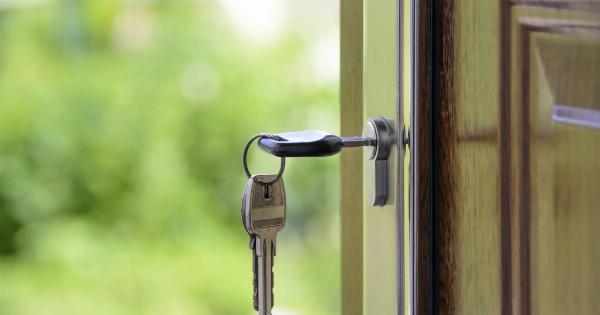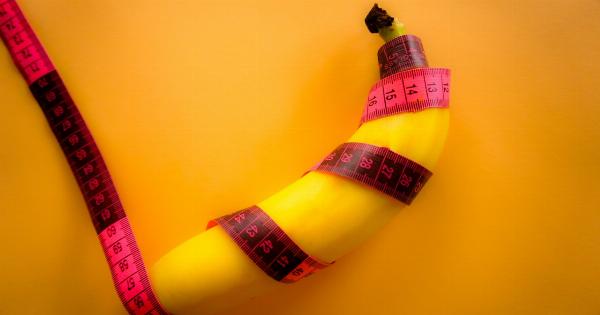Sex is a beautiful and natural experience that can bring pleasure, intimacy, and connection between partners. However, it can also have its awkward and embarrassing moments, particularly when it comes to bodily functions.
One of those moments is when vaginal gases occur during sex. Although it’s a normal bodily function, it can still be embarrassing if it happens unexpectedly or excessively. In this article, we will explore the causes of vaginal gases, how to prevent them, and what to do if they happen during sex.
What Causes Vaginal Gases?
Vaginal gases, also known as queefing, happen when the vagina expels air. The air can get trapped inside the vagina due to various reasons and then released during movement or pressure, such as during sex or exercise.
The sound of vaginal gases can resemble a fart, but it doesn’t have the same foul smell or come from the rectum. Instead, it’s a harmless and odorless occurrence that can happen to anyone with a vagina.
The most common causes of vaginal gases are related to sexual activity, particularly during positions that involve deep penetration or the insertion and removal of objects.
When the vagina is stretched or stimulated, it can push air into the canal, causing it to fill with air. Then, when the vagina relaxes or changes positions, the air can escape and cause a queefing sound. Other causes of vaginal gases can include wearing tight clothes, being pregnant, or hormonal changes in the body.
How to Prevent Vaginal Gases During Sex
Although vaginal gases are a natural occurrence, some people may feel embarrassed or uncomfortable when they happen during sex. Therefore, it’s understandable to want to prevent them from happening altogether.
Here are some tips to prevent vaginal gases during sex:.
1. Communication
Communication is key when it comes to sexual activity. If you’re worried about queefing, have an honest and open conversation with your partner about it.
Let them know that it’s a normal occurrence and doesn’t mean anything negative about them or your sexual experience. By communicating your concerns, you can alleviate stress and anxiety, making sex more enjoyable for both of you.
2. Change Positions
As mentioned earlier, some sexual positions can increase the likelihood of vaginal gases. If you’re prone to queefing, try changing positions to avoid deep penetration or positions that involve stretching the vagina.
Experiment with positions that don’t put pressure on the vaginal canal, such as spooning or missionary. You can also try using pillows or cushions to adjust the angle and depth of penetration and reduce the chances of queefing.
3. Practice Kegels
Kegels are exercises that can strengthen the muscles in the pelvic floor, including the vaginal muscles. By doing kegel exercises regularly, you can improve your vaginal muscle tone and control.
This can help you prevent vaginal gases during sex and improve overall sexual satisfaction. You can practice kegels by contracting your pelvic muscles, holding the contraction for a few seconds, and then releasing. Repeat this exercise several times a day to see results.
4. Lubrication
Using lubrication during sex can reduce friction and make vaginal penetration more comfortable. It can also reduce the likelihood of vaginal gases by reducing the amount of air that gets trapped in the vagina.
Use a water-based lubricant to avoid irritation and discomfort, and apply it generously to both partners’ genital areas.
What to Do If Vaginal Gases Happen During Sex
Despite your best efforts to prevent vaginal gases, it can still happen during sex. If it does, here’s what you can do:.
1. Laugh It Off
Vaginal gases are a normal occurrence and don’t have to be taken seriously. If it happens during sex, don’t be embarrassed or ashamed. Instead, try to laugh it off and continue with your sexual activity.
Your partner may find it amusing or endearing, which can enhance your connection and intimacy.
2. Take a Break
If you or your partner feel uncomfortable or distracted by the vaginal gases, take a break from sexual activity. You can use this time to communicate your feelings and concerns, or simply to relax and reset.
Remember that sexual activity should be enjoyable and comfortable for both partners, so don’t force yourself to continue if it’s not.
3. Address the Root Cause
If you’re experiencing excessive vaginal gases during sex, it may be due to an underlying cause, such as a vaginal infection or hormonal imbalance. In this case, it’s important to address the root cause by seeking medical advice.
A healthcare provider can perform a physical examination and provide appropriate treatment to resolve the issue.
Conclusion
Embarrassing sex moments can happen to anyone, and vaginal gases are just one of them.
However, with some communication, awareness, and preparation, you can reduce the likelihood of queefing during sex and enjoy a more comfortable and satisfying sexual experience. Remember that vaginal gases are a natural bodily function and don’t have to be a source of shame or discomfort.


























